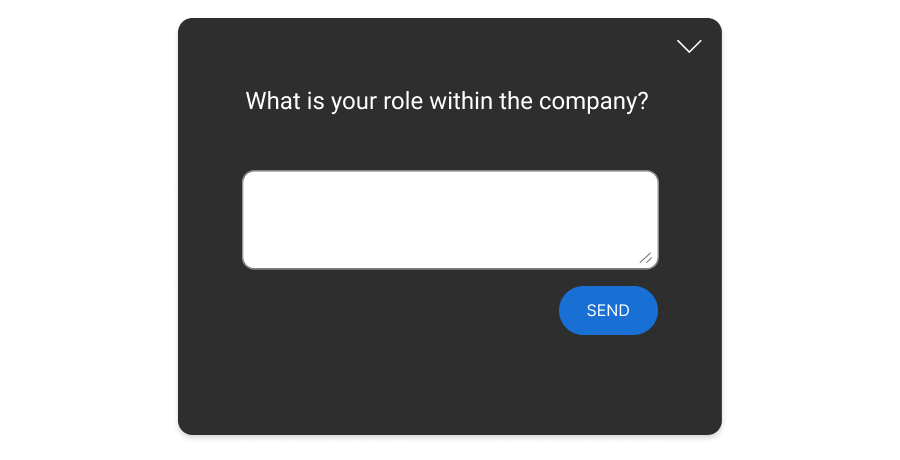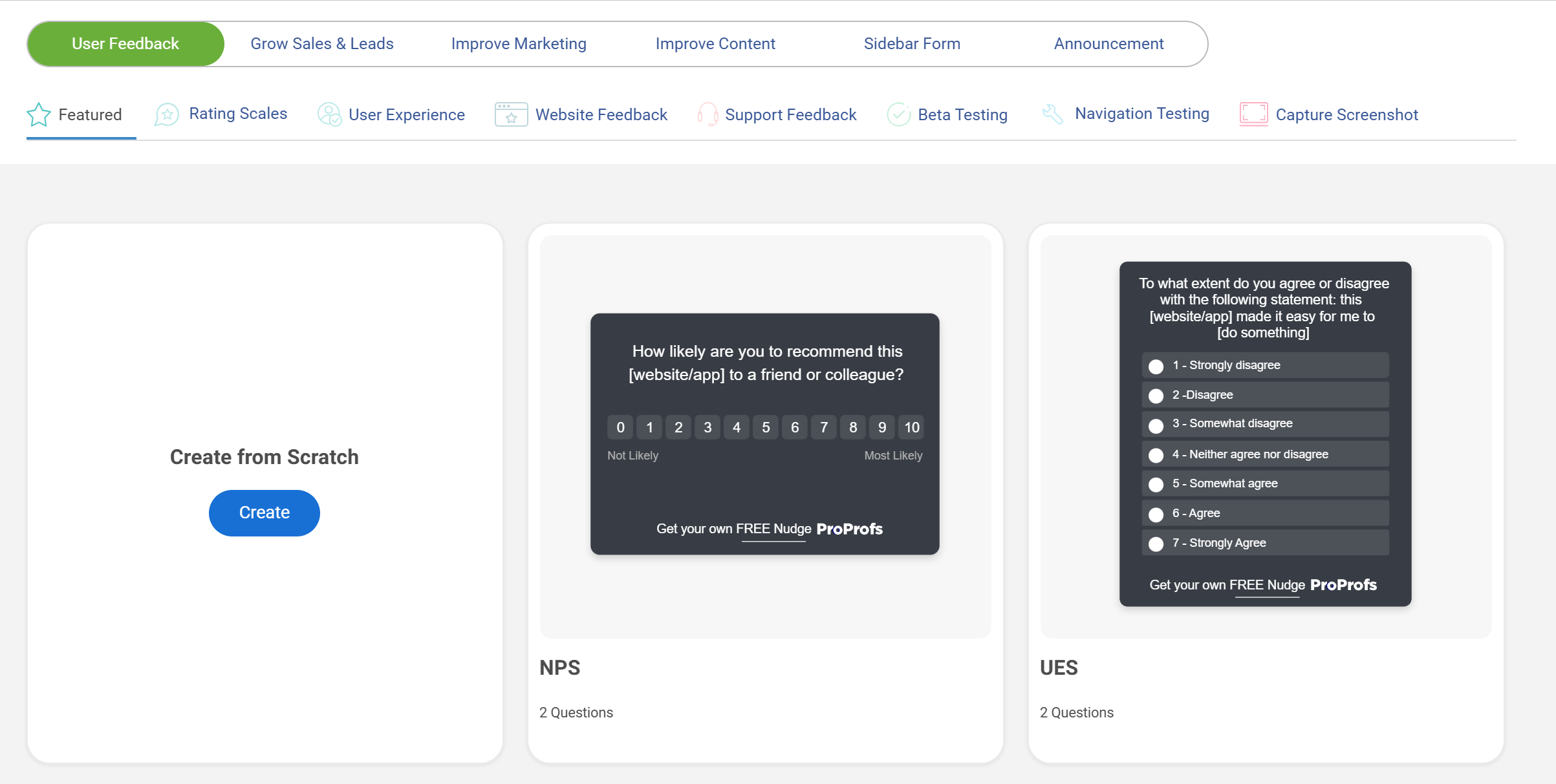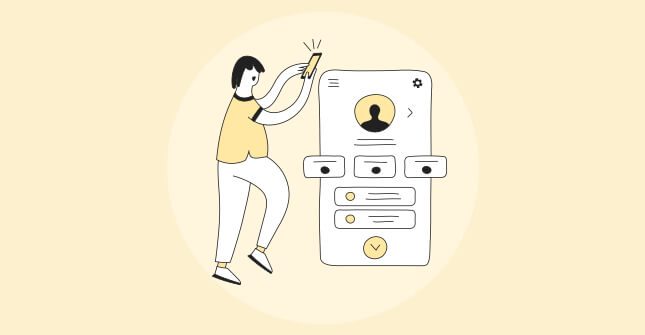Measuring B2B customer satisfaction isn’t just important—it’s critical. In B2B relationships, you’re not just dealing with individual consumers; you’re managing long-term partnerships and high-value transactions that can make or break your business.
Each client represents a significant investment, and their satisfaction can directly impact repeat business, your reputation, and growth. That’s why asking the right questions in your surveys is essential.
In this post, I’ll show you how to craft B2B customer satisfaction survey questions that dig deep, provide actionable insights, and help you grow and sustain these valuable relationships.
Ready to elevate your feedback game? Let’s dive in.
Examples of B2B Customer Satisfaction Survey Questions
These questions assess clients’ overall satisfaction with your products, services, and interactions. They provide a holistic view of how well your company meets client expectations and highlight areas that need improvement. In B2B, this often covers multiple facets, such as product quality, account management, and long-term relationship-building.
Demographic Questions
Demographic questions help you understand the background and characteristics of your clients, which can influence how they perceive your offerings. In B2B, this could include industry, company size, role, and decision-making authority.

Example Questions:
- What is the size of your company (number of employees)?
- Which industry does your business operate in?
- What is your role within the company?
- How long have you been in your current role?
- How involved are you in the decision-making process for purchasing new products/services?
Post-Purchase Questions
These questions help gauge the immediate reaction of clients after purchasing your product or service. This feedback is crucial to understanding the effectiveness of your sales process, the onboarding experience, and initial satisfaction.

Example Questions:
- How satisfied are you with the purchase process?
- How clear and accurate were the details we provided to you before purchasing?
- Did the product/service meet your expectations?
- How likely are you to recommend us based on your purchase experience?
- Was the delivery and setup of your product/service smooth and efficient?
Billing, Invoicing, and Payment Process Feedback Questions
These questions focus on the financial and administrative aspects of the client relationship. Smooth billing and invoicing processes are crucial in B2B transactions, where misunderstandings can lead to frustration and damaged relationships.
Example Questions:
- How would you rate the clarity of our invoices?
- Was the billing process straightforward and easy to understand?
- Were your payments processed without any issues?
- How satisfied are you with the variety of payment options available?
- How could we improve our billing or invoicing process?
Read More: Contextual Feedback: A Blueprint for Delivering User-Centric Experience
Pricing Feedback
Pricing feedback questions help you understand if your pricing structure aligns with the value perceived by your clients. In B2B, this feedback is essential, as businesses often make decisions based on budget constraints and ROI considerations.

Example Questions:
- How would you rate the value for money of our product/service?
- Do you feel our pricing is competitive within the industry?
- How well does our pricing structure match the value delivered?
- Are there any additional costs that you feel were not clearly communicated?
- How likely will you continue purchasing from us at the current price point?
Post-Onboarding Questions
These questions assess the clients’ experience after they have been onboarded and started using your product/service. It’s important to check that the transition from sale to product usage is smooth and that clients feel supported during this phase.
Example Questions:
- How satisfied are you with the onboarding process?
- Was the training provided during onboarding sufficient for your needs?
- How quickly could you start using the product/service after onboarding?
- Did you feel supported by our team during onboarding?
- What could we have done differently to improve your onboarding experience?
Read More: How Personalized Onboarding Will Patch the Biggest Hole in Your Funnel
Product Usage Questions
Product usage questions help you understand how clients interact with your product or service. This feedback can guide future product improvements, identify usability issues, and highlight features that are most valuable to your clients.
Example Questions:
- How frequently do you use our product/service?
- Which features of the product/service do you find most useful?
- Have you encountered any challenges or limitations while using the product?
- How easy is it to integrate our product/service into your daily operations?
- How would you rate the overall usability of the product/service?
Follow-Up Questions
Follow-up questions are used to maintain an ongoing dialogue with your clients and ensure that any issues they’ve experienced are resolved. They help keep the relationship strong by showing clients that their feedback is valued and acted upon.

Example Questions:
- Were any previous concerns or issues you raised addressed to your satisfaction?
- How likely are you to reach out to us if you encounter a future problem?
- How responsive do you feel we have been to your feedback or concerns?
- Have you noticed any improvements based on your previous feedback?
- Is there anything further we can do to improve your experience?
Customer Support Feedback Questions
These questions evaluate your clients’ satisfaction with the support they receive when issues arise. This feedback helps ensure your support team is meeting client expectations in terms of responsiveness, problem-solving, and professionalism.
Example Questions:
- How satisfied are you with the response time from our support team?
- How would you rate the knowledge and professionalism of our support staff?
- Was your issue resolved to your satisfaction?
- How easy was it to reach the support team when you needed assistance?
- How could we improve our customer support experience?
Overall Customer Satisfaction Questions
These are broad questions that assess your client’s general sentiment about their entire experience with your company. They provide a big-picture view of client satisfaction, which can be a good indicator of long-term retention.
Example Questions:
- On a scale of 1 to 10, how satisfied are you with your overall experience with us?
- How likely are you to recommend our company to others in your industry?
- How well does our product/service meet your overall expectations?
- How would you rate the quality of our partnership with your business?
- How likely are you to renew your contract with us?
Open-Ended Questions
Open-ended questions allow clients to share their thoughts in their own words, providing more nuanced and detailed feedback. These insights can often reveal underlying issues or opportunities not captured in close-ended questions.

Example Questions:
- What do you think we are doing well in our partnership?
- What areas do you believe we could improve?
- What factors influenced your decision to choose us over competitors?
- What specific results have you seen since using our product/service?
- Is there anything else you would like to share about your experience with us?
These categories and questions will help you gather comprehensive feedback from your B2B clients, enabling you to identify strengths, address weaknesses, and improve overall client satisfaction.
Read More: How to Measure Customer Satisfaction in 8 Quick Steps
B2B Customer Satisfaction Survey Templates
Qualaroo offers a variety of ready-made B2B customer satisfaction survey templates to help you get started quickly and effortlessly.
These templates are fully customizable. You can tweak questions and add branding elements like logos and colors to make them look and feel like a natural extension of your business.
Similarly, you can easily deploy these surveys across multiple channels to reach your customers at the right touchpoints, including email, in-app, and website pop-ups.
Here are some examples of the templates:



Why Are B2B Client Satisfaction Surveys Important?
B2B client satisfaction surveys are essential because long-term, high-value relationships define most B2B partnerships. Unlike B2C, where individual purchases are often one-off or low-commitment, B2B relationships involve large contracts, bulk purchases, recurring orders, and strategic collaborations that can profoundly impact both parties’ operations and growth.
Here’s why B2B client satisfaction surveys are critical:
- Tailored Client Experience: B2B clients expect personalized service and tailored solutions that directly address their unique business challenges. Surveys help you understand each client’s specific needs, enabling you to adjust your offerings to fit their business context more precisely.
Read More: Omnichannel Customer Experience: Benefits, Strategies, & Examples
- Proactive Risk Management: In B2B, losing a single client can mean a significant loss of revenue and reputation. Satisfaction surveys help you spot early warning signs, such as dissatisfaction with certain services or processes, allowing you to intervene before the relationship deteriorates.
- Relationship Depth and Complexity: B2B relationships often span multiple departments and decision-makers within both companies. Surveys capture feedback from various stakeholders, providing a 360-degree view of the partnership, which is crucial for understanding the complexities and dynamics involved.
- Alignment With Business Goals: B2B clients often measure satisfaction based on how well your services help them achieve their business objectives. Surveys allow you to gauge if you’re delivering measurable value and aligning with their strategic goals beyond just providing a product or service.
Read More: The Ultimate Guide To 16 Successful B2B SaaS Marketing Strategies
- Continuous Improvement Loop: B2B environments rapidly evolve with new technologies, market trends, and regulatory changes. Regular surveys ensure that you stay attuned to shifting client needs, allowing you to adapt your services proactively and remain a valuable partner as their business grows or changes.
- High-Stakes Decision-Making: In B2B, satisfaction impacts critical decisions, such as contract renewals, expansions, and long-term commitments. Surveys provide the insights necessary to foster trust and ensure that clients feel confident in investing in the long-term relationship.
Best Practices for Crafting B2B Customer Satisfaction Surveys
Let’s look at some key strategies that can help you craft impactful surveys and ultimately drive growth and foster stronger relationships.
- Segment Feedback by Role and Function: B2B clients often involve multiple stakeholders with varying perspectives, from decision-makers to end-users. Structure your survey to capture input from different roles (e.g., executives, procurement, IT, etc.) within the client organization. This approach ensures you collect relevant insights from each functional area, providing a more complete picture of satisfaction across the company.
- Focus on Key Relationship Touchpoints: In B2B, satisfaction is often influenced by specific touchpoints, such as project milestones, onboarding experiences, or account management interactions. Tailor your survey to explore satisfaction at these critical points rather than generalizing the entire relationship. For example, ask about their experience during implementation, training, or regular account check-ins.
- Measure Value, Not Just Satisfaction: B2B clients are deeply concerned with ROI and business outcomes. Include questions that measure the perceived value your product or service delivers to their business objectives, such as efficiency gains, cost savings, or revenue growth. Clients need to feel that your solutions contribute directly to their bottom line, not just that they’re “satisfied.”
- Incorporate Business-Specific Metrics: Move beyond standard satisfaction scales and integrate metrics that reflect your clients’ industry-specific challenges or KPIs. For instance, if your client is in manufacturing, ask how your product impacts production uptime or supply chain efficiency. This creates a stronger connection between satisfaction and the measurable impact on their business.
- Benchmark Against Industry Standards: B2B clients often compare vendors against industry standards or competitors. Include questions that ask how your performance compares to similar solutions they’ve used or how well you meet industry benchmarks. This allows you to measure satisfaction and your standing within the competitive landscape.
- Solicit Forward-Looking Feedback: B2B relationships are long-term, so include questions that encourage clients to share what they will need in the future. Ask how their needs are evolving, what challenges they foresee, and how your company could better support them moving forward. This future-oriented feedback helps you stay ahead of the curve and anticipate their changing demands.
- Ensure Feedback Is Actionable: Design questions that lead to clear, actionable insights rather than vague generalities. Instead of asking, “How satisfied are you with our service?” ask, “What specific improvements could we make to enhance your experience?” This enables you to zero in on specific pain points or opportunities for improvement that can directly impact client retention and satisfaction.
- Leverage Open-Ended Questions Strategically: B2B relationships are complex, and close-ended questions might miss the nuance. Use open-ended questions selectively to capture qualitative insights on key areas like strategic alignment, product customization, or collaboration effectiveness. However, avoid overwhelming respondents—use them to probe deeper into specific topics where more context is needed.
- Tie Survey Timing to Business Events: Don’t send surveys arbitrarily; link them to specific events like project completion, contract renewals, or after resolving a major issue. This timing makes the feedback more relevant and specific, as clients will have fresh experiences to draw upon, leading to more accurate and detailed responses.
- Customize Follow-Up Based on Responses: In B2B, clients expect a more personalized follow-up to their feedback. Segment your follow-up actions based on the responses you receive. For example, prioritize in-depth reviews for clients who indicate dissatisfaction and provide detailed, personalized action plans for improving the relationship.
Read More: Creating a Customer Satisfaction Survey: Best Practices and More
FREE. All Features. FOREVER!
Try our Forever FREE account with all premium features!
Create Stellar B2B Customer Satisfaction Surveys to Foster Business Growth
Effective B2B customer satisfaction surveys are key to building stronger, long-term relationships and driving business growth.
By focusing on key touchpoints and aligning feedback with client needs, you can transform insights into actionable improvements that foster loyalty and success.
Tools like Qualaroo help you take surveys to the next level with targeted, customizable options that capture real-time feedback.
Ready to elevate your survey game? Explore how Qualaroo can help you turn feedback into a competitive advantage. Get started free, or get a demo today!
FREE. All Features. FOREVER!
Try our Forever FREE account with all premium features!

 We'd love your feedback!
We'd love your feedback! Thanks for your feedback!
Thanks for your feedback!





